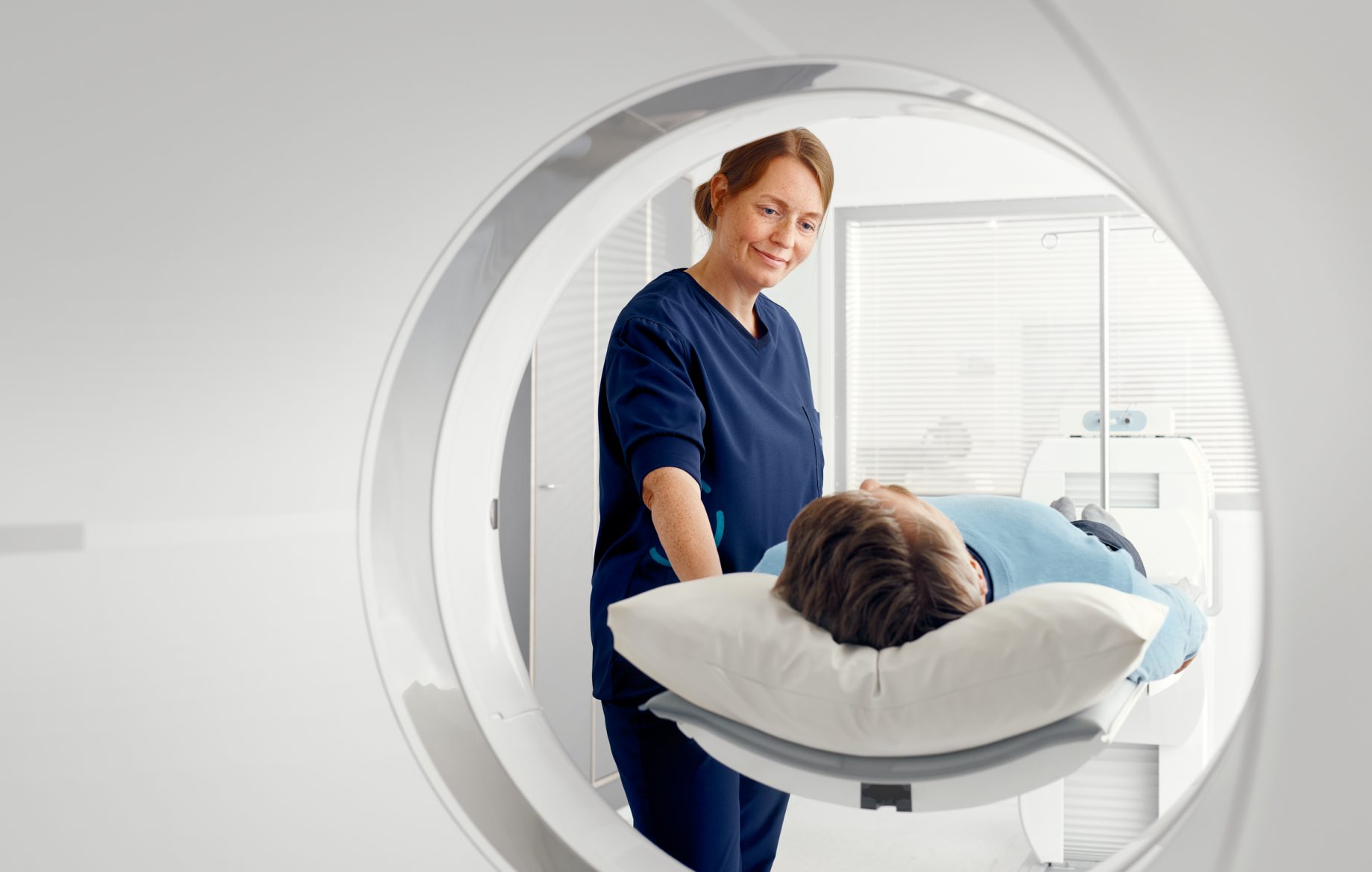How prostate cancer is diagnosed?
Diagnosing prostate cancer starts on the first visit to a urologist or a cancer specialist with thorough examinations. These include the patient’s medical history, discussion on e.g. medication, general health, previous examinations and treatments, as well as reviewing potential previous laboratory examinations, the definition of new examinations (e.g. PSA test, urine culture, testosterone level) and potential questionnaire examinations (e.g. urination symptoms or erectile dysfunction). The physician also performs a rectal examination, which gives vital important about the state of the prostate, urinary organs and genitals. In addition to the rectal examination, the doctor can also perform an ultrasound of the prostate gland.
Does rectal examination hurt?
Rectal examination is a medical procedure that may cause more anxiety than any other examination performed at the surgery. However, there is no reason to be afraid of this examination: the urologist is a professional who knows how to perform necessary examinations gently but accurately enough. Rectal examination gives vital information about the state of prostate, urinary organs and genitals. It is very important to palpate the prostate gland: the physician should assess the size of prostate and examine the gland for any lumps. In addition to palpation, the doctor can perform an ultrasound examination.
If there is reason to suspect cancer in this stage, e.g. on the basis of high PSA levels or abnormal palpation findings, the urologist will prescribe further examinations, in order to make a diagnosis. Such tests include for example an Proclarix test, STHLM3 test and an MRI scan of the prostate.
The cancer is ascertained, and its aggressiveness is assessed by the examination of a tissue sample. To this end, a needle biopsy will be collected from the prostate. The most representative samples of suspicious changes are based on a robot-assisted MRI-guided navigation biopsy, which method Docrates was the first in Finland to introduce. Using a microscope a pathologist determines the grade of differentiation or malignancy using the international Gleason grading system.
Extent of prostate cancer is always to be determined carefully prior to selecting treatment
In order to treat prostate cancer efficiently, the extent of cancer has to be determined as precisely as possible.
An MRI on the prostate is always needed prior to the final decision to select surgery or radiation therapy. The MRI shows if the cancer has spread outside of the prostate. If the cancer extends to the urethral sphincter area, it is particularly difficult to operate, as the sphincter muscle can be damaged during surgery, or in sphincter-sparing surgery, some cancer cells can be left behind.
In these situations, radiotherapy can be aimed at the urethra more extensively, which improves curability, while at the same time potential adverse effects caused by two various forms of treatment can be avoided. Radiation treatment can also eliminate more comprehensively those cancer cells that are outside the prostate capsule.
MRI imaging and PET diagnostics provide the best information on the spread of the prostate cancer outside of the prostate gland. Docrates Cancer Center has a long-time experience of the MRI imaging of prostate cancer patients. Our MRI scanner Magnetom Vida 3T provides accurate data on the quality of cancer and the shape of the tumor.
PET-CT examination is increasingly used in the treatment of patients. At Docrates, we have also strongly invested in more specific tracers. In the diagnostics of prostate cancer the newest tracers in use are PSMA-targeted. They are particularly sensitive in recognising the presence of postsurgical or postradiologic recurrence of cancer even at very low PSA levels. Moreover, such tracers can detect if the prostate cancer has spread into lymph nodes or bones, among others.
PSMA-PET examinations enable more accurate diagnostics of prostate cancer, whereupon treatment can be tailored better than before, preserving good quality of life, with all the aids of modern radiotherapy. The precise tracking of cancer is most important also for the surgeon who is planning a surgical removal of the prostate. Read more about prostate cancer staging here.
In its treatments, Docrates Cancer Center also utilizes information about the heredity of both people and cancer. Docrates has at its disposal a variety of genetic and other tests which are performed using a sample of a cancerous tumor or blood. The results will be used to make decisions about the types of treatment in special situations. Read more information about genetic profiling here.
We know that cancer suspicion may cause anxiety and uncertainty. The cancer treatment experts at Docrates work uncompromisingly, utilising the most advanced technology in order that you get the most accurate possible information and diagnosis – and certainty in your situation. Do not hesitate to contact us and ask for further information! We will be pleased to help you!










